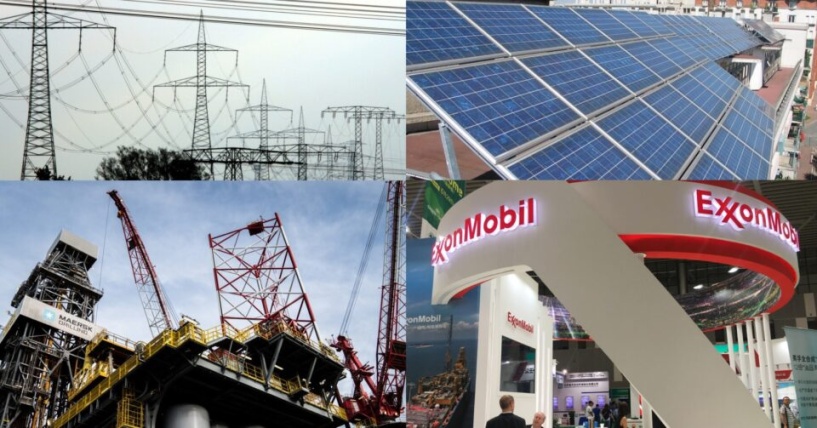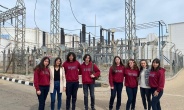yprus Energy Regulatory Authority (CERA) chairman Andreas Poullikkas on Monday stated the energy transition, which primarily concerns the transition from fossil fuels to sustainable energy sources, while a necessary and ambitious objective, presents many challenges that need to be addressed.
Poullikkas explained that a major challenge is the need to develop the necessary infrastructure to install energy and hydrogen storage technologies.
“Renewable energy sources, such as wind and solar, are variable energy sources and depend on weather conditions,” he said.
“This means that they cannot always provide a constant supply of energy. To ensure a reliable energy supply, additional infrastructure must be built, such as energy storage systems including hydrogen and in the case of the electricity sector an upgrade of the transmission system,” he added, noting that this is an expensive and time-consuming process.

Cyprus Energy Regulatory Authority (CERA) chairman Andreas Poullikkas
Another challenge, Poullikkas stated, is the need to transition to smart and digitised energy systems.
He explained that this requires an integrated and coordinated approach that includes changes in energy production, transmission, distribution and consumption, alongside new policies, regulations and incentives, that will be designed to support this entire endeavour.
Another challenge that the CERA chairman listed is the social and economic impact of the energy transition, since the transition to renewable energy sources for electricity generation will lead to the closure of fossil fuel power plants, the loss of jobs in these industries and negative impacts on the communities that depend on them to make ends meet.
“It is important for governments to address these impacts and provide support to affected communities,” Poullikkas said.
He added that “the energy transition also presents political challenges”, noting that “some governments and businesses are already resisting the energy transition for a variety of reasons, including energy costs, making it difficult to build political support for the necessary policies and investments to support the energy transition”.
Despite these challenges, he explained, the energy transition is essential to address the urgent threat of climate change and ensure a sustainable energy future.
What is more, Poullikkas said that the energy transition requires both the cooperation and efforts of governments, businesses and individuals around the world, as well as significant investment in research, development and infrastructure.
“With a strong commitment and the right policies and actions, the energy transition can be successful and deliver many benefits, such as reduced air pollution, improved public health and increased energy security,” he said.
For this to happen, he said, energy infrastructure must be transformed radically, something which requires an integrated long-term sustainable energy strategy across the entirety of the energy sector, not just in terms of electricity production.
Other areas that require both planning and the necessary actions include heating and cooling, transport, energy conservation, exploitation of domestic hydrocarbons and other energy resources, as well as the protection and management of critical pieces of energy infrastructure.
“As a small island nation with a relatively high dependence on fossil fuels, our country faces a number of challenges in its transition to a more sustainable energy mix,” Poullikkas said.
“More specifically, Cyprus, like several other countries, built its current development model on the overconsumption of its natural resources,” he added, noting that “the main objectives of development policy as it has been formulated during the last sixty years have been economic growth and the achievement of full employment conditions”.
In addition, he stated that Cyprus’ national development strategy, as we know it to date, has rarely worked with the long-term interests of future generations in mind.
Furthermore, Poullikkas said that Cyprus’ sustainable energy strategy should take into account a number of objectives, including the need to deal with climate change, the use of sustainable technologies, such as increasing the share of renewable energy sources, energy storage systems and other alternative energy sources such as hydrogen, energy security, the development of electrical interconnections with the EU’s internal electricity market and the protection of Cyprus’ energy infrastructure.
He went on to say that the energy sector is expected to be the backbone of Cyprus’ economy in the coming years, with the sustainable future of the country being directly connected to the efficient management of its hydrocarbon reserves, the further penetration of sustainable technologies, and the development of interconnections.
These sectors, he noted, can facilitate both economic development and an increase in jobs if they are developed in a rational, sustainable manner.
“The transition to a more sustainable energy mix in Cyprus will require significant investment in sustainable technologies, smart energy infrastructure, hydrogen technologies, as well as education and public engagement to support the energy transition,” Poullikkas said.
“While these challenges may seem daunting, the long-term benefits of a more sustainable energy mix, including lower greenhouse gas emissions, improved air quality and energy security, make the energy transition necessary for the future of Cyprus’ future generations,” he concluded.















